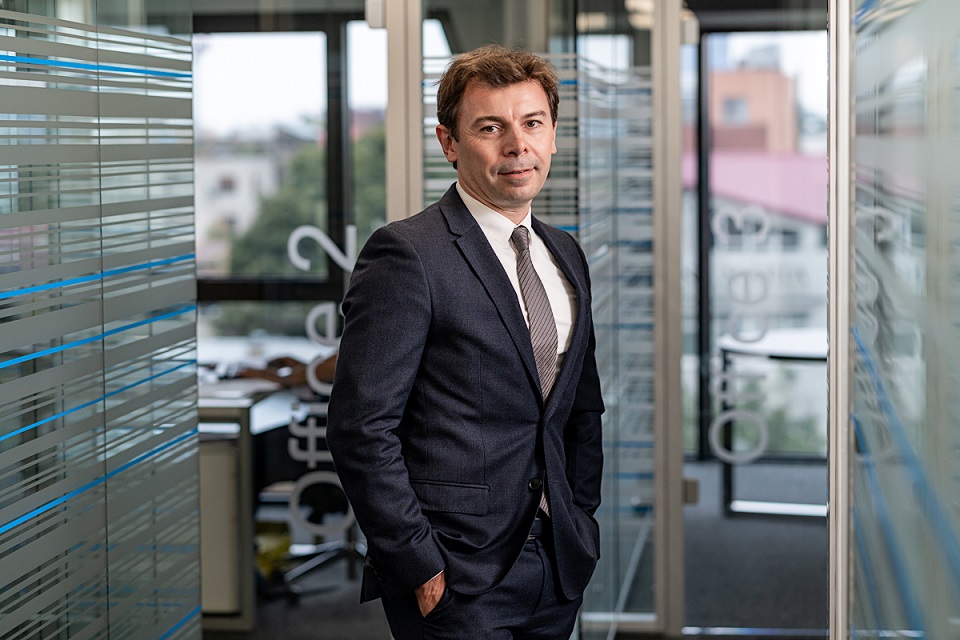Horváth: Labor demand in Eastern Europe will increase over the next five years

- The lack of staff is mentioned by manufacturing companies as a barrier to business growth. This challenge is already a reality for companies in Romania, which face a shortage of engineers, energy specialists and other industry specialists.
- Employee concerns (attracting and retaining staff, developing new skills) have risen to the “top 3” priorities for most executives, along with digital transformation and cyber security risks.
- The labor force will also grow in North America and Asia, but will remain flat or decline in Western and Southern Europe.
.The workforce will increase globally, in the next five years, anticipate the executives who answered in the “CxO Priorities 2023” study, carried out by Horváth – a management consulting company with 40 years of international experience, which also operates in Romania , since 2005.
In Eastern Europe, some respondents (10%) see this growth as high, while another 48% expect a moderate one (48%). The workforce will also grow in North America and Asia, but will remain flat in Western and Southern Europe, along with Africa and South America. Beyond regional differences, workforce concerns (“people topics”) have become a top priority for executives, both those at the helm of manufacturing companies and those in the service area.
The attraction and retention of staff, as well as the development of new skills, are on the agenda of all executives and have required the identification of different approaches such as:
- adopting a flexible work schedule;
- strengthening the organizational culture and the employer brand;
- digitization and automation; or
- improving the qualifications of existing personnel. The problems related to the labor force are felt more and more strongly by companies in Romania, especially in the case of industrial ones, which will face a lack of engineers and energy specialists. On the other hand, companies in the field of services will be able to compensate to a greater extent the shortage of personnel through digitization and automation based on artificial intelligence (AI), according to Horváth Romania representatives.
Among other aspects revealed by the “CxO Priorities 2023” study is a rather reserved perspective on the results that companies expect this year. Only 47.1% of the executives of some manufacturing companies expect an increase in the operating margin (EBIT margin) compared to 2022, while the growth expectation rises to 61.5% in the case of service companies. However, in order to maintain and improve financial performance in the coming years, 55% of the surveyed companies rely on regionalization and digital transformation. To avoid disruptions in supply chains, such as those appearing after 2020, as well as geopolitical risks, several companies want to move their production units and suppliers as close as possible to end customers.
The greatest interest in regionalization is found in the automobile manufacturing industry (84%), that of mechanical engineering, installations, electrical and automation (65%) and consumer goods (53%). In this context, interest in China as a production market remains high for only 10% of companies.
In terms of digital transformation, this remains a major concern for executives, and the business areas with the greatest potential for automation are: (1) customer service and consulting; (2) sales, marketing and procurement; (3) controlling and finance; (4) IT; and (5) human resources. Another concern for executives is cyber security.
Although the number of security incidents has increased over the past year, most attacks have failed, which shows that companies have made investments in this area. The industry most exposed to cyber attacks is insurance (with a 54% increase in attacks), followed by retail (35%) and areas such as automotive, banking and healthcare (each with 29%).
“Among the priorities of the executives who participated in the Horváth study, the concern with securing the necessary personnel to support the growth plans in the coming years stands out. Eastern Europe is among the areas where more employees will be needed, especially in engineering and other technical fields, as some businesses relocate closer to end customers in Western Europe. Romania will not be an exception and it is vital that managers develop strategies to attract new employees, improve the qualification level of the current ones and invest in retaining the best”, said Kurt Weber, Managing Director, Horváth Romania.
For the “CxO Priorities” study, more than 430 executives (of which 35% at CEO level) were surveyed, from companies operating in 13 fields (7 from the manufacturing industry and 6 from services) and which have headquarters in 19 countries, located in Europe, North America, Europe and Asia.
Horváth is one of the most important international, independent, management consulting companies, also present on the Romanian market, since 2005. The company was founded in Stuttgart, in 1981, by Prof. Dr. Péter Horváth, one of the pioneers of Controlling in Germany and has over 1,000 employees. Horváth has offices in Germany (Berlin, Düsseldorf, Frankfurt, Hamburg, Munich and Stuttgart), Austria, Romania, Switzerland, Hungary, Saudi Arabia and the United Arab Emirates, but the company’s consultants are available to clients globally. Horváth is a member of Cordence Worldwide, the largest active worldwide alliance of prestigious management consulting companies with nearly 70 offices in 24 countries located on three continents.
















